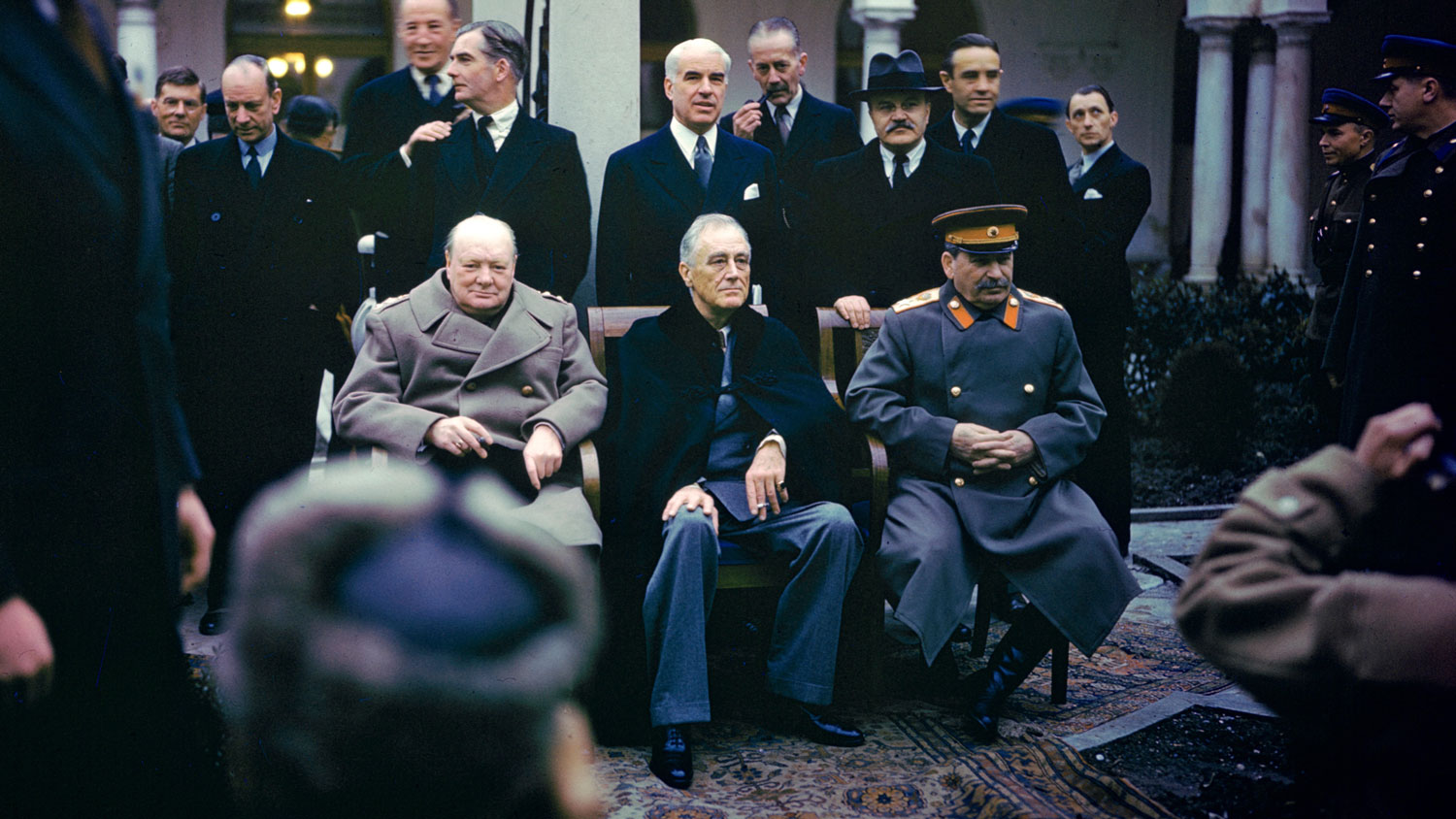The Joint Crisis Committee (JCC) is a dynamic and fast-paced committee model that simulates historical or fictional conflicts from multiple perspectives. Unlike traditional committees, JCC consists of two or more opposing cabinets, each representing different sides of a conflict. Delegates take on roles such as military generals, political leaders, and intelligence officers, making real-time decisions that shape the course of events.
JCC simulations have been used in diplomatic and military training to develop crisis management skills. In MUN, JCC provides a unique experience by challenging delegates to adapt to sudden developments, negotiate under pressure, and strategically plan their actions. Historically, JCC scenarios have included events such as the Cuban Missile Crisis, World War II battles, and Cold War conflicts.
Topics and Relevance
The Yalta Conference, held in February 1945, was a crucial meeting between the Allied leaders—Winston Churchill, Franklin D. Roosevelt, and Joseph Stalin—to determine the post-war reorganization of Europe. The conference shaped the division of Germany, the establishment of the United Nations, and the geopolitical landscape of the Cold War.


In this JCC scenario, delegates will be divided into two cabinets: the Western Allies (United States and United Kingdom) and the Soviet Union. They will negotiate the fate of Eastern Europe, the reconstruction of Germany, and the foundation of post-war global governance. The decisions made will influence decades of international relations, testing the delegates’ diplomatic and strategic abilities.
Rules of Procedure
1. Opening and Roll Call
- The chair opens the session and calls out delegates for roll call.
- Each delegation responds with either “Present and Voting” or “Present.” “Present and Voting” means the delegate will participate in voting, while “Present” means the delegate is present but may choose not to vote.
2. Crisis Updates
- Crisis updates and developments are usually presented at the start of the session or provided during the session.
- These updates are typically given by the chair or crisis manager.
- Crisis updates are often communicated in writing to the committee.
3. Crisis Notes
- Delegates can send crisis notes to gather information from other delegations or propose actions related to the ongoing crisis.
- Crisis notes can contain suggestions, strategies, or requests for action in response to the crisis.
- These notes are sent confidentially between delegations and are not immediately read by the chair.
4. Submitting and Passing Crisis Notes
- Crisis notes must follow a specific format and can be submitted with the chair’s approval.
- These notes allow delegates to quickly develop responses to the crisis or propose solutions.
- The acceptance or rejection of a crisis note is handled by the receiving delegation.
5. Speeches and Moderated Caucus
- The chair allows delegates to deliver speeches, usually with a time limit (e.g., 1-2 minutes).
- Moderated caucus sessions focus on a specific issue related to the crisis, where delegates can discuss possible solutions or strategies.
- Speeches in a moderated caucus are timed and involve formal discussions on specific topics.
6. Unmoderated Caucus
- In an unmoderated caucus, delegates can freely discuss and negotiate without formal speeches or structure.
- This allows delegates to strategize, build alliances, or address specific aspects of the crisis without a moderator’s control.
- Unmoderated caucuses are typically more informal and flexible.
7. Crisis Actions
- Delegates can propose crisis actions, which may include diplomatic, military, or other strategic measures.
- Crisis actions can be submitted in writing and need the chair’s approval.
- These actions can include declarations of war, forming alliances, or large-scale policy shifts.
8. Motions
- Delegates can propose motions to the chair, including:
- Motion for a moderated caucus: A proposal for a formal discussion on a specific issue within a limited time.
- Motion for an unmoderated caucus: A proposal for informal discussions without a time limit.
- Motion to extend the session: A proposal to extend the duration of the session.
- Motion to move to voting procedure: A proposal to proceed to vote on a specific matter.
9. Voting Procedures
- Voting procedures in a JCC are usually quick and decisive.
- Delegates can vote “Yes,” “No,” or “Abstain” on a motion or proposal.
- Votes are typically conducted on important decisions or crisis actions, and the results are announced quickly.
10. Crisis Resolution
- Crisis resolution involves finding solutions through crisis actions, diplomatic measures, and negotiation.
- When a delegate proposes a solution, they may negotiate with others and move to voting on the resolution.
- The resolution must be approved by a majority of the committee, with the chair’s final approval.
11. Adjournment
- At the end of the session, the chair will often provide final remarks regarding the crisis resolution and outcomes.
- The session is adjourned once the final decisions and resolutions are made.


